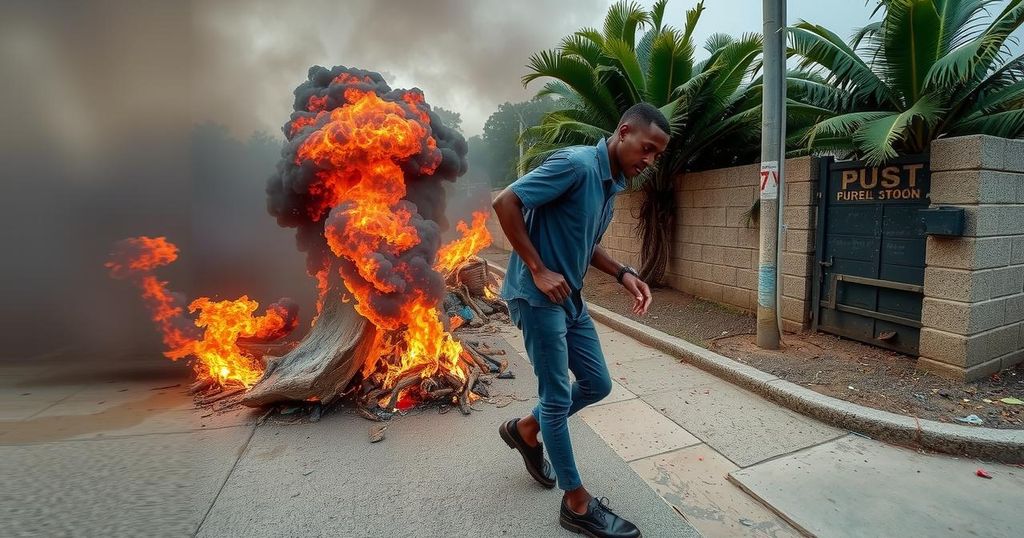Mozambique Faces Severe Unrest Following Disputed Election Results
Mozambique is facing its worst election-related violence in over 30 years, with over 250 deaths reported since the presidential election in October. Protests against alleged electoral fraud have led to intense clashes between citizens and authorities, with calls for nationwide shutdowns. This unrest poses significant implications for both the country and the broader southern African region.
Mozambique is currently experiencing its most severe election-related violence in over three decades, following the ruling of the nation’s highest court which upheld contested results from the presidential election on December 23, favoring the long-dominant Frelimo party. A civil society organization has reported that protests have led to at least 125 fatalities since the ruling, totaling 252 deaths since the election in October. The situation has escalated, with demonstrators accusing the government of electoral fraud, resulting in direct confrontations with law enforcement and military forces. The leading opposition candidate has proclaimed himself the legitimate victor, urging citizens to engage in nationwide shutdowns. This unrest has manifested in widespread societal upheaval, characterized by burning tires, looting, informal roadblocks, and significant prison breaks. Human rights activist Cídia Chissungo remarked on the severity of the situation, stating, “It’s not even protest anymore. This is like a social revolt.”
Mozambique’s unrest is particularly vital to monitor due to its strategic importance in southern Africa, serving as a crucial port that facilitates connectivity between the region and the global market. As turmoil unfolds, the implications stretch beyond immediate violence, potentially impacting trade and stability throughout the region.
The current unrest in Mozambique has its roots in the contentious presidential election and subsequent court ruling which upheld results that many view as fraudulent. The Frelimo party has been in power for decades, leading to widespread disenchantment among the populace. As protests erupted, the government’s heavy-handed response sparked further violence and social disorder, mirroring tensions reminiscent of the country’s civil war that concluded in 1992. The unrest highlights the delicate political climate in Mozambique, as well as the potential for regional destabilization.
In conclusion, the ongoing violence in Mozambique reveals significant issues surrounding electoral integrity and public discontent with the ruling government. With over 250 lives lost and increasing calls for national shutdowns from opposition leaders, the situation threatens not only national stability but also the regional peace and economic connections of southern Africa. Continued monitoring of Mozambique’s developments is crucial, as the ramifications of the unrest could resonate far beyond its borders.
Original Source: www.nytimes.com




Post Comment